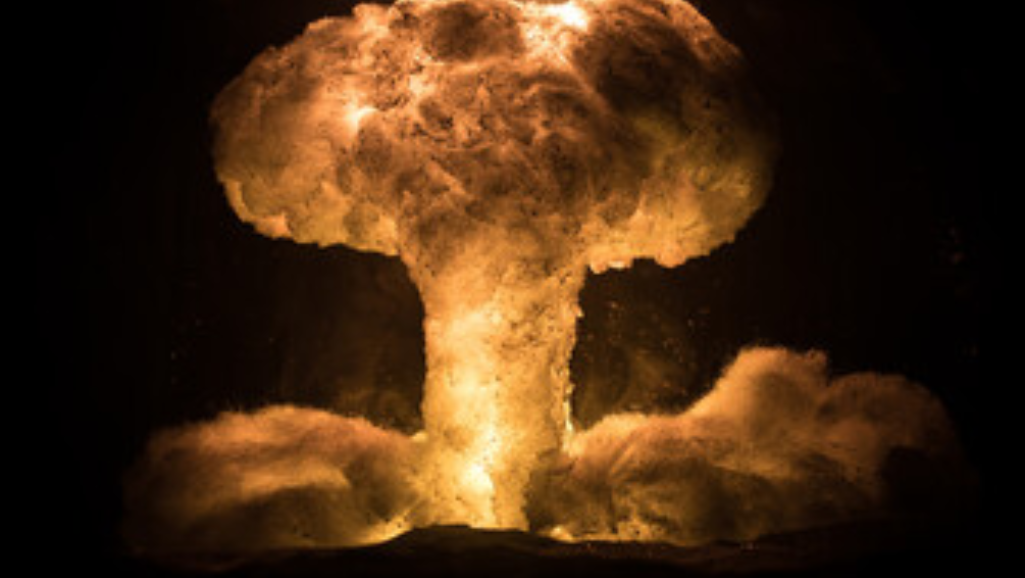If a nuclear power plant is bombed, the immediate impact is the destruction and release of radioactive materials. This leads to environmental contamination and the spread of radiation. Both short-term and long-term health risks arise, affecting human well-being. Evacuation and emergency response are crucial to ensure public safety. The economic consequences are significant, disrupting infrastructure and industry. Moreover, the international community faces security concerns, as this event has implications for global nuclear policy. Learn more about the devastating effects of a nuclear power plant bombing in this article.
Immediate Impact: Destruction and Release of Radioactive Materials
If a nuclear power plant is bombed, the immediate impact will be the catastrophic destruction and release of highly dangerous radioactive materials. The explosion will cause extensive damage to the infrastructure of the plant, leading to the release of radioactive substances into the environment. This release of radiation poses a significant threat to human health and the surrounding ecosystem.
Reconstruction efforts following such an event would be of utmost importance. The affected area would require a massive cleanup and containment operation to minimize further harm. This would involve the removal and disposal of contaminated materials, decontamination of the surrounding environment, and the implementation of measures to prevent the spread of radiation.
The psychological impact of a nuclear power plant bombing cannot be underestimated. The fear and anxiety caused by such an event would be widespread and long-lasting. Communities living near the plant would experience heightened levels of stress and trauma, leading to mental health issues. Rebuilding trust and providing support to those affected would be crucial in the recovery process.
Environmental Contamination: Spread of Radiation
One of the major consequences of a nuclear power plant bombing is the widespread contamination of the environment with radioactive materials. The release of these materials into the atmosphere can lead to their dispersion over large areas, posing significant risks to human health and the environment. To assess the extent of contamination, radiation monitoring is crucial. Monitoring stations are strategically placed to measure radiation levels and detect any potential hotspots. This information helps authorities determine the areas that require immediate attention for decontamination.
Decontamination procedures are essential to minimize the long-term effects of radiation exposure. These procedures involve the removal and disposal of contaminated materials, such as soil, vegetation, and water. Decontamination efforts aim to reduce radiation levels to acceptable limits and prevent further spread of contamination. Strict protocols are followed to ensure the safety of workers involved in the decontamination process.
Additionally, decontamination measures also include the cleaning of structures, equipment, and infrastructure within the affected area. This helps reduce the potential for ongoing contamination through contact with contaminated surfaces.
It is crucial to understand that environmental contamination resulting from a nuclear power plant bombing can have long-lasting effects. Therefore, prompt and effective radiation monitoring and decontamination measures are vital to minimize the risks posed by the spread of radiation and protect both human health and the environment.
Health Risks: Short-term and Long-term Effects on Human Health
You will experience both short-term and long-term health effects if a nuclear power plant is bombed. The release of radiation from the explosion can have immediate and lasting impacts on your well-being. Here are three key points to consider:
- Short-term symptoms: Immediately after the bombing, you may experience symptoms such as nausea, vomiting, diarrhea, and skin burns. These symptoms are a result of the high doses of radiation exposure. Additionally, you may also suffer from fatigue, dizziness, and loss of appetite. It is crucial to seek medical attention promptly to mitigate the effects of radiation.
- Long-term diseases: Exposure to radiation from a nuclear power plant bombing can lead to the development of serious long-term diseases. Cancer is one of the most significant risks, with an increased likelihood of developing various types, including leukemia, thyroid cancer, and lung cancer. Other potential long-term diseases include cardiovascular disorders, genetic mutations, and reproductive issues.
- Psychological impact: Apart from the physical health consequences, the psychological impact of a nuclear power plant bombing can be severe. The fear and anxiety of developing radiation-related illnesses may lead to long-term mental health issues, such as post-traumatic stress disorder (PTSD) and depression.
It is vital to prioritize safety measures, evacuation, and immediate medical assistance in the event of a nuclear power plant bombing to minimize both short-term symptoms and long-term diseases associated with radiation exposure.
Evacuation and Emergency Response: Ensuring Public Safety
To ensure public safety in the event of a nuclear power plant bombing, prompt evacuation and efficient emergency response are crucial. Evacuation protocols are designed to swiftly move people out of harm’s way and minimize exposure to radiation. These protocols typically involve the establishment of designated evacuation routes and shelters, where individuals can seek protection and receive necessary medical attention if needed.
Emergency preparedness plays a significant role in ensuring a swift and effective response to a nuclear power plant bombing. This includes having well-trained emergency response teams in place, equipped with the necessary resources and knowledge to handle the situation. Additionally, communication systems must be established to disseminate timely and accurate information to the public, enabling them to make informed decisions regarding their safety.
Evacuation drills and exercises are conducted regularly to test the efficiency of evacuation protocols and identify any areas for improvement. These drills help familiarize the public with the evacuation process and ensure a smooth and organized response in the event of an actual emergency.
Economic Consequences: Disruption of Infrastructure and Industry
Prompt evacuation and efficient emergency response in the event of a nuclear power plant bombing can result in significant economic consequences, such as the disruption of infrastructure and industry. The disruption of supply chains and the subsequent impact on industries can lead to an economic recession. Here are three ways in which a nuclear power plant bombing can disrupt infrastructure and industry:
- Disruption of transportation networks: A nuclear power plant bombing can damage roads, bridges, and railways, making it difficult to transport goods and materials. This can result in delays and increased costs for businesses, affecting their operations and profitability.
- Damage to critical infrastructure: Nuclear power plants are typically located near water sources for cooling purposes. A bombing can contaminate these water sources, making them unusable for industrial purposes. This can disrupt the operations of industries that rely on water, such as manufacturing and agriculture.
- Loss of power supply: A nuclear power plant bombing can lead to a loss of electricity supply in the surrounding area. This can disrupt the operations of industries that depend on a reliable power supply, such as manufacturing, data centers, and healthcare facilities.
The disruption of infrastructure and industry caused by a nuclear power plant bombing can have far-reaching economic consequences. It is crucial for governments and businesses to have contingency plans in place to mitigate these risks and ensure a swift recovery.
International Security Concerns: Implications for Global Nuclear Policy
Highlighting the international security concerns surrounding a nuclear power plant bombing, implications for global nuclear policy become a pressing matter. The potential devastation caused by such an attack raises questions about the adequacy of current measures in place to prevent and respond to such incidents. The international community must prioritize global cooperation and diplomatic negotiations to address these concerns effectively.
In the wake of a nuclear power plant bombing, the implications for global nuclear policy are far-reaching. The incident highlights the need for robust international cooperation to prevent the proliferation of nuclear weapons and ensure the safety and security of nuclear facilities worldwide. It becomes crucial to strengthen existing frameworks such as the Treaty on the Non-Proliferation of Nuclear Weapons (NPT) and the International Atomic Energy Agency (IAEA) safeguards to deter potential threats and enhance the overall security architecture.
Diplomatic negotiations play a pivotal role in addressing international security concerns related to nuclear power plant bombings. Countries must engage in dialogues to foster trust, promote transparency, and establish mechanisms for sharing information and intelligence. This includes enhancing cooperation in intelligence gathering, threat assessment, and response coordination. Additionally, diplomatic efforts should focus on strengthening non-proliferation regimes, including the negotiation of new agreements and the enforcement of existing ones.





